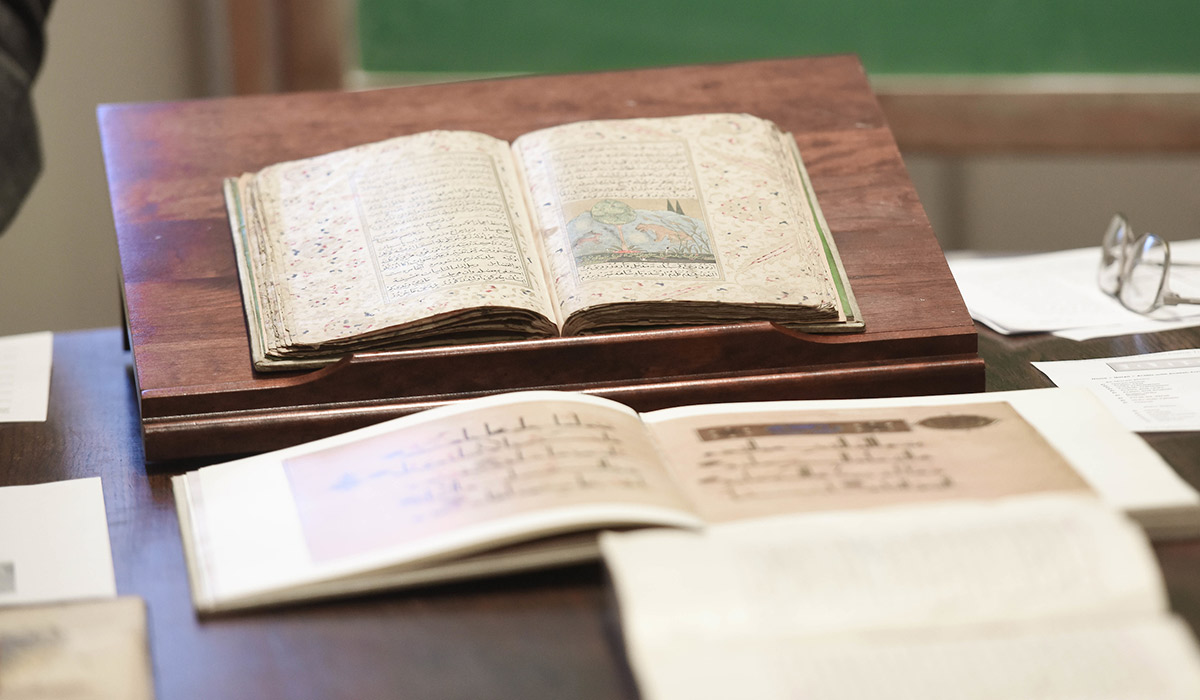The Department of Ancient and Medieval Languages and Cultures offers a wide variety of courses each semester, including multiple languages at all levels from introductory to graduate; classes on history, civilization, and culture taught using sources in English; and specialized classes in advanced analysis and technical disciplines.
Numbering and naming conventions
Language courses
Courses that teach Greek and Latin languages are designated GR and LAT, respectively. Within these categories, the first four semesters of study are designated as 101-102 (the elementary year) and 103-104 (the intermediate year). Many GR and LAT courses above the 104 level are cross-listed to allow for enrollment by both undergraduate (numbered in the 400s and below) and graduate (numbered in the 500s and above) students.
All of the Near Eastern language courses in the department are designated with the prefix SEM. The most frequently offered languages are Hebrew, Aramaic, Coptic, Syriac, and classical Arabic, although Akkadian, Ugaritic, Ethiopic, Armenian, and Old Georgian are also regularly taught according to the needs and interests of students and faculty. SEM courses at the 500 and 600 levels are open to qualified undergraduates even though they are not cross-listed. Language courses above the 500 level may be repeated, provided that their contents have changed.
Because students will be evaluated on either the Catholic University undergraduate or graduate grading scale according to the course number under which they are registered, it is important to choose the right version of the class you are planning to take. Those with questions are always invited to consult the advisors.
Courses not requiring the use of ancient languages
The department also offers many courses where no language background is required or taught. Classical Studies courses (CLAS) range from undergraduate ancient history (CLAS 205-206) and mythology (CLAS 211) all the way up to graduate seminars (like CLAS 572, on the Mediterranean world of late antiquity). Some SEM courses are taught in English, on topics like the history of ancient Israel or the Christian Near East. Interdisciplinary courses cross-listed under the Medieval Studies (MDST) or Early Christian Studies (ECST) course prefixes also frequently welcome students from a variety of language backgrounds and concentrate most or all of their work in English, as well.
English-language courses are a great way to try out the study of the past and get to know the department. At the undergraduate level, they also count easily towards our minor and our major in Classical Studies.
-
Course Schedules
Learn More -
Course Descriptions
Learn More

